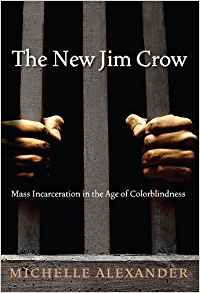
10 Ways To Be an Anti-Racist Reader
We talk a lot about reading diversely around Book Riot—because it’s awesome and important—but there are lots of other ways you can weave racial justice into your reading life. From using books to help you navigate hard conversations about race to providing the kids in your life with diverse books, here are ten suggestions on how to be an anti-racist reader.
1. Read diversely
Reading diversely (which can mean a lot of different things) is probably the best first step you can take on your journey toward being an anti-racist reader. Book Riot has an awesome and informative five-part series on reading diversely, so I won’t delve here into all the reasons that reading diverse books by diverse authors is a) important, b) mind-heart-and-brain -opening, and c) super fun. If you’re not already reading diversely, I guarantee that doing so will deepen and enrich your reading life.
2. Buy books by currently working authors of color
I am an avid library user, and I have a limited book-buying budget, so I’ve always given careful thought to what books I actually throw down money for. In my quest to enact anti-racism in my reading life, I’ve started paying attention to racial diversity not only in the books I read, but in the books I buy. Thousands of authors of color are out there writing brilliant books and telling incredible stories; buying their work is the most direct and straightforward way to celebrate it.
3. Support POC-owned bookstores & businesses
Buying books by authors of color isn’t the only way to use your money to support diverse voices in the book business and publishing industry. Publishing in the US is overwhelmingly white. It’s a systemic problem that will take more than a shift in personal book-buying habits to change—but shifting your book-buying habits is a great place to start.
Do a little research to see if there’s a POC-owned bookstore in your community. An article published in 2014 by the African American Literature Book Club reported only 54 black-owned bookstores remaining in the country. You can use this excellent list to search for black-owned bookstores by state.
Small publishers are another great source for diverse books, as they often publish books that don’t get mainstream attention. The Cooperative Children’s Book Center has a fantastic list of small presses that publish diverse books, most (but not all) of which are owned by people of color. You can also check out this list of five rad black-owned publishers I put together.
Bookstores and publishing houses aren’t the only way to buy books. Book Riot did a great roundup of book subscriptions featuring diverse authors. I subscribed to My Lit Box this winter and I absolutely love it. It’s a POC-owned business, and every month I get a fantastic book by an author of color in my mailbox. I’ve also sampled boxes from Noir Reads and Call Number, two other POC-owned book subscription boxes, and if I had an unlimited budget, I’d happily subscribe to all three. Call Number offers a fiction and nonfiction box, and Noir Reads packs two books into each $35 box.
4. Fund books and comics on Kickstarter written and produced by people of color
Crowd-soured funding platforms are a fantastic way to find out about awesome books and comics that mainstream publishing may be ignoring—not because they aren’t incredible stories, but because the publishing industry is skewed toward white. Some of my favorite comics are self-published—many of them webcomics that used crowd-sourced funding to print digital and/or paper books.
A search through Kickstarter will likely reveal a whole bunch of great publishing projects. Not only are there books and comics written by people of color to fund, but some great reading-related projects as well.
To give you a sense of the awesomeness that is out there, here are some recent projects I’ve backed, all either produced by people of color or featuring writers/illustrators of color: Bingo Love (a black queer romance comic novella), Dates 2, (a comic anthology of queer historical fiction), We’re Still Here (an all-trans comics anthology), The Well-Read Black Girl Writers’ Conference & Festival (a festival that “will address the dire need to create empowering communal spaces for Black women in literature”), and Cut From the Same Cloth (a collection of essays written by British hijabis).
5. Use books as a jumping-off points for conversations about racial justice
Sometimes it’s hard to get through to the people we’re closest to, especially our friends and family. Emotion can cloud our ability to have honest, open, and nonjudgmental conversations. It’s often easier to get defensive, frustrated, or hurt by people we know well.
A fellow Rioter recently recounted a story about his ongoing conversations with his father about systemic racism and white supremacy. As someone who saw the injustice in police brutality and wasn’t an actual Nazi, his father had continually refused to understand how he could be racist or uphold racist systems.
 Frustrated at his inability to get through to his dad, my fellow Rioter decided to send him a copy of The New Jim Crow by Michelle Alexander. A few days later, he got an email from his dad thanking him for the book. In the email, he admitted his own ignorance and said that the book had helped him fill in many holes in his own understanding of white supremacy and systemic racial oppression.
Frustrated at his inability to get through to his dad, my fellow Rioter decided to send him a copy of The New Jim Crow by Michelle Alexander. A few days later, he got an email from his dad thanking him for the book. In the email, he admitted his own ignorance and said that the book had helped him fill in many holes in his own understanding of white supremacy and systemic racial oppression.
This story gives me so much hope. Books have real power, and they can help moderate converations about race with your loved ones. Sometimes all you need is a little help from a voice that isn’t your own.
6. Start or join a social justice book club
Books are powerful, and reading can change your worldview in deep and profound ways. But if you never talk about what you’re reading, or ask big questions, or explore any of it with other humans, it can be easy to let all that learning just fade away. Reading is the first step. Action is the second step. Action can be as small as having a conversation with a friend—a conversation can go a long way. Talking to other people about what you’re reading can be as enlightening, comforting, challenging, rewarding, and important as reading itself.
Book Riot has got some great info about how to start book clubs—advice you can apply to a book club with a social justice theme. You can start an online book club focusing on social justice, or you can start a mini two-person book club—just pick a friend and a book and you’re good to go! Bustle has some great advice on starting a feminist book club.
It’s also possible there are existing book clubs focusing on racial justice in your area that you can join. A quick google search for “racial justice book clubs” yielded several groups meeting across the country.
7. Don’t be an apologist for racist classics; don’t be afraid to openly discuss the problematic parts of books you love
I’m willing to bet that at least some of your childhood favorites are racist.
I adore Laura Ingalls Wilder’s Little House series. But when I reread the books as an adult, I was appalled by their rampant racism. I can’t make myself not love these books, or erase the sense of magic I felt when my parents read them to me as kid. But I don’t defend them. I don’t make excuses for Wilder’s racism or recommend them to the kids in my life. I let them go. There are thousands of incredible books out there that aren’t racist. There’s no need to defend books that uphold and perpetrate violent racist rhetoric.
One rioter recently wrote about rereading Harry Potter as an adult, and recognizing some of the problematic ways J.K. Rowling failed to address race and perpetuated stereotypes.
Sometimes writers get a bunch of things right and a couple things wrong. It doesn’t always mean you need to throw the book out the window. But neither should you ignore the problems. Like refusing to see color or pretending we live in a “post-racial” world, refusing to talk about issues of race in literature is dangerous. It’s important to talk about the problems in Harry Potter—or any other literature that you can’t stop loving despite its shortcomings. Talking about things out in the open is an important part of creating change. Sometimes tough love works.
8. Shower the kids in your life with diverse books
You don’t have to be a parent to be an anti-racist role model for the children in your life. I have a seven year old nephew who is obsessed with reading. I’ve made it my mission to give him books by authors of color, full of diverse protagonists. It’s really fun for me and it’s a great way to start conversations about race with kids. We Need Diverse Books has lots of great resources for finding diverse books for kids of all ages.
Book Riot has you covered, too: diverse, spooky read for kids, picture books featuring children of color, middle grade books featuring kids of color, middle grade fantasy with black girl leads, middle grade #ownvoices books, and intersectional feminism in YA fiction (just to get you started).
9. Follow authors of color on social media
Friends, I don’t do Twitter. But pretty much everyone else in the universe does. If I did, I’d quickly fill up my feed with some of my favorite authors of color. Writers are usually smart and awesome people, and they generally have interesting and relevant stuff to say.
Looking for some resources to help you set up your perfect social media feed? This list isn’t all authors of color, but it’ll get you started. Here are some diverse bookish Instagram accounts to follow. Here’s a list of black authors of follow on Twitter, and here’s a list of fifteen smart women of color on Twitter (many of whom are writers).
10. Use books to educate yourself about racism—don’t ask people of color to explain it to you
If you’re a white person, and especially if you’ve just started to educate yourself about white supremacy and systemic racism, you might be feeling overwhelmed. The US has a long and ugly history with racism. Understanding that history is a crucial part of dismantling systems of oppression that exist today. But it can be scary and uncomfortable. You’re not sure where to start. It might be tempting to turn to your black friend and ask them to explain it all to you.
Doing so is problematic for so many reasons. It’s asking someone to do a huge amount of emotional labor, unprompted. It’s centering your own needs and experiences over those of the person you’re talking to. Kali Halloway discusses it eloquently in this article on Salon.
Luckily, books are here to help!
On Book Riot:
- 100 Must-Read Books About the Law and Social Justice
- The Effects of Racism: A Reading List
- 3 Short Reads on Race and Activism
Elsewhere on the internet:
- These 16 Books Explain White Supremacy
- 16 Books About Race That Every White Person Should Read
- 18 Books Every White Ally Should Read
- 17 Books on Race That Every White Person Needs to Read
This is only the tip of the iceberg. There are literally thousands of books, articles, blogs, and organizations out there to help you understand racism in the US. Go forth and educate yourself!





